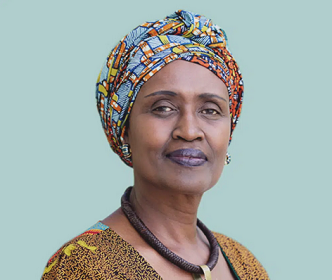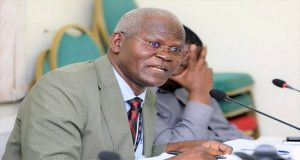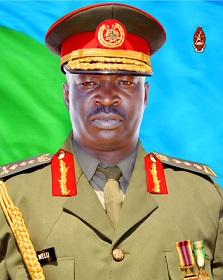
Dear American friends,
When AIDS hit Africa it tore my continent. It was said in many communities that every extended family lost someone—it hit my family, too. The U.S. President’s Emergency Plan for AIDS Relief, launched by President George W. Bush, and carried forward by every subsequent President and Congress, has changed that. It has saved millions of lives, pushed back a pandemic, and helped advance economic development and stability. It has shown, too, what it looks like when a country leads by demonstrating the power of compassion and partnership. PEPFAR is the greatest contribution made by any country to ending AIDS. Now, with the end of AIDS achievable this decade, the world needs PEPFAR to finish the job.
I was recently in Washington D.C., where I met with passionate activists from across America. They were there to advocate for the inspirational work of PEPFAR in meetings with members of Congress. Americans are rightly proud of PEPFAR’s contribution to the health and development of tens of millions of people around the world.
In the last 20 years, the U.S. Government has invested more than US$110 billion to support the response to HIV and AIDS in 55 low and middle-income countries with the highest burden of HIV. The results that PEPFAR has helped make possible are remarkable—the rate of new HIV infections has fallen by almost half, AIDS-related deaths have been reduced by two thirds, and three-quarters of people living with HIV are on life-saving medicine. Millions of deaths have been prevented, and millions of babies have been born HIV-free.
Through the global HIV response, PEPFAR’s work has strengthened health and community systems, delivering broader outcomes for health, economic and human development and equity, accelerating progress towards achievement across the Sustainable Development Goals. Annually, PEPFAR has provided support and services through more than 70 000 facility and community health clinics; 3000 laboratories and nearly 30 national reference laboratories, as well as more than 340 000 health care and community workers. PEPFAR’s investment in health systems contributes significantly to national surveillance and health information capacities, which were critical to national COVID-19 responses and remain crucial for managing future pandemics and other public health threats.
PEPFAR has demonstrated the invaluable role of community engagement and civil society for advancing health and sustainable development, from helping faith-based organizations providing essential HIV care and support services across Africa, to ensuring support for Ukrainian civil society as the front-line of the national HIV response throughout the war.
As an important part of U.S. diplomacy, PEPFAR’s unflinching commitment to stand up against discrimination and inequities in HIV services sends a powerful signal that the world needs to ensure that nobody is left behind if we are to end AIDS.
PEPFAR works through partnerships. I look forward to my upcoming joint mission in Africa with PEPFAR and the Global Fund. At UNAIDS, which works on the ground in over 90 countries, including all 55 PEPFAR partner countries, we see the difference PEPFAR makes every day.
Twenty years ago, President Bush launched the creation of PEPFAR by announcing that “seldom has history offered a greater opportunity to do so much for so many”. In 2003, U.S. Congress moved swiftly to authorize PEPFAR within weeks. PEPFAR legislation was reauthorized in 2008, 2013 and 2018, with the bipartisan leadership and support of the U.S. Congress. With the lives of tens of millions of people hanging in the balance, countries, communities and UNAIDS are confident that we can rely on the American people, and that the U.S. Government and the U.S. Congress will continue to demonstrate unparalleled leadership through support for PEPFAR.
What was once a dream, but which PEPFAR’s partnership makes possible—the end of AIDS by 2030—is a reflection of the values of the American people. So today I wanted to write to you to say Thank You.
Yours,
Winnie Byanyima
UNAIDS Executive Director
Under-Secretary-General of the United Nations






